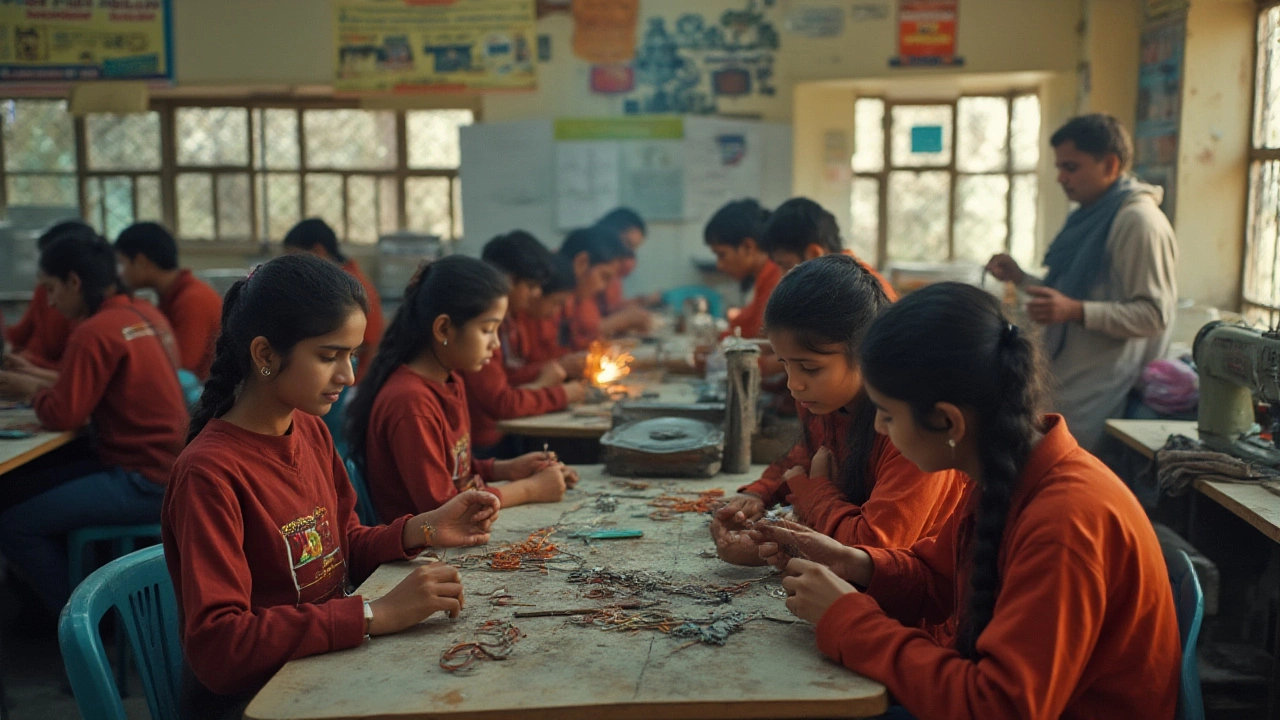Hands-on Learning: Real Skills for Real Jobs
When talking about hands-on learning, a teaching approach that blends theory with direct practice, letting students apply concepts in real‑world settings. Also known as experiential learning, it bridges the gap between classroom knowledge and job‑ready abilities.
Vocational education, structured programs that focus on specific trades or occupations, often delivered by technical institutes is a natural partner for hands‑on learning. When you enroll in a vocational course, you get labs, workshops, and industry projects that turn abstract ideas into tangible skills. This synergy means students finish not just with a certificate, but with the confidence to perform tasks from day one.
Skill‑based training, short, focused modules that target a single competency such as coding, digital marketing, or plumbing builds on that foundation. Because the training zeroes in on a single skill, learners can immediately practice on real tools—think coding a simple app or wiring a plumbing fixture. The result is a faster learning curve and a portfolio that speaks louder than grades.
Certification programs, industry‑backed credentials that validate a learner’s ability to perform a specific job function provide the official stamp that employers trust. Whether it’s a Google Career Certificate or a local trade certification, the hands‑on projects required for these badges prove that the learner can deliver results under real conditions.
Take the computer courses listed on our portal for example. A basic computer literacy class might run for three months, but it includes daily lab sessions where students use real software to solve problems. Fashion design programs blend studio work with runway projects, while plumbing courses mix classroom theory with on‑site installations. Each of these practical courses follows the hands‑on learning model: learn, do, repeat.
Digital marketing and IT certifications also thrive on this model. A 30‑day digital marketing starter kit pushes you to set up real ad campaigns, track metrics, and tweak strategies live. Google’s free certificates demand you complete labs on cloud platforms, so you finish the course with an actual cloud project under your belt. These experiences turn a resume line into a story you can tell in an interview.
Why does this matter for placement? Employers today scan for evidence that candidates can hit the ground running. Hands‑on projects, industry‑validated certificates, and vocational apprenticeships are the proof points they look for. By choosing programs that embed practical work, you boost your employability and align with the hiring trends of Indian technical institutes and global firms alike.
Below, you’ll find a curated collection of articles that dive deeper into each of these areas—career paths, course lengths, cost breakdowns, and real‑world success stories. Browse through to see which hands‑on learning route fits your goals and start building the skills that matter right now.
Vocational Training Explained: Practical Skills & Real Career Examples
- Rohan Mittal
- on Jul 16 2025
- 0 Comments
